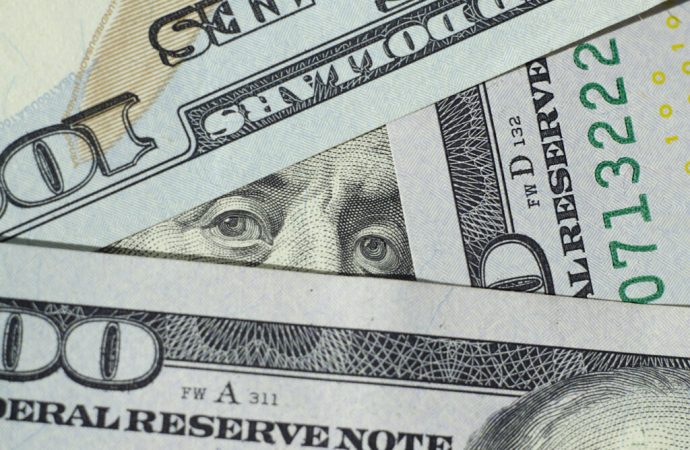Currency exchange rates play a vital role in shaping the global economy. These rates represent the value of one currency relative to another and directly affect international trade, investment, tourism, and the overall financial stability of nations. One of the most significant influences on currency exchange rates comes from global events—economic, political, and environmental. These
Currency exchange rates play a vital role in shaping the global economy. These rates represent the value of one currency relative to another and directly affect international trade, investment, tourism, and the overall financial stability of nations. One of the most significant influences on currency exchange rates comes from global events—economic, political, and environmental. These events can cause fluctuations, often creating uncertainty in financial markets. In this article, we will explore how global events impact currency exchange rates and provide a detailed analysis of the factors involved.
Understanding Currency Exchange Rates
Currency exchange rates are determined by the foreign exchange market (Forex), where currencies are traded. These rates fluctuate based on various factors, including supply and demand, interest rates, inflation, and the overall stability of a nation’s economy. While everyday market factors drive the movement of exchange rates, global events such as wars, pandemics, natural disasters, and political decisions can cause significant, sometimes sudden changes.

Image by: https://top news.com
Global Events That Impact Currency Exchange Rates
Several types of global events influence currency exchange rates in various ways. Below are some of the most common types of events that can cause shifts in currency values:
1. Economic Crises
Economic downturns or financial crises, whether domestic or global, often lead to a depreciation of the affected country’s currency. For example, during the 2008 global financial crisis, the value of many currencies fell sharply. The U.S. dollar initially weakened as a result of the crisis, but it quickly recovered and became a safe haven, causing other currencies to weaken in comparison. Economic crises lead to reduced investor confidence, lowered trade activities, and weakened economies, all of which affect exchange rates.
2. Political Instability
Political events such as elections, governmental changes, and political unrest can create uncertainty, which directly impacts currency exchange rates. When a country experiences political instability, foreign investors often withdraw their investments, causing a drop in the currency’s value. For example, the Brexit referendum in 2016 caused a significant decline in the British pound due to uncertainty surrounding the U.K.’s future relationship with the European Union.
3. Wars and Geopolitical Tensions
Wars and geopolitical tensions can disrupt global trade, affect resource prices, and create instability, all of which impact currency exchange rates. During periods of war, governments often print more money to fund their military operations, leading to inflation and depreciation of the currency. On the other hand, countries that remain neutral or safe during conflicts often see their currencies strengthen as they become safe havens for investors. A notable example is the strength of the Swiss franc during periods of European conflict.
4. Natural Disasters
Natural disasters can have a devastating impact on a country’s economy, leading to disruptions in production, infrastructure damage, and reduced exports. These events often lead to currency depreciation as the affected country struggles to recover. A clear example is the impact of the 2011 earthquake and tsunami in Japan, which temporarily weakened the Japanese yen. Similarly, hurricanes, floods, and wildfires can disrupt economies, leading to currency fluctuations.
5. Global Pandemics
The COVID-19 pandemic is a recent example of how global health crises can impact currency exchange rates. The pandemic led to widespread economic shutdowns, reduced global trade, and heightened investor uncertainty. During the early months of the pandemic, many currencies depreciated as countries faced economic downturns. The U.S. dollar initially strengthened as investors sought safety in a stable currency, but as the pandemic dragged on, the dollar weakened while other currencies began to recover.
How Global Events Influence Supply and Demand in Forex Markets
Global events often cause shifts in supply and demand in Forex markets. When a country is perceived as unstable or its economy is suffering, investors may sell off that country’s currency, leading to depreciation. On the other hand, safe-haven currencies such as the U.S. dollar, Swiss franc, or Japanese yen may see increased demand during times of global uncertainty, causing their value to rise.
In addition, global events that affect commodity prices—such as oil shocks or trade wars—can also affect currency exchange rates. For example, countries that rely heavily on oil exports, like Russia or Venezuela, often see their currencies weaken when global oil prices fall due to geopolitical tensions or other events. Conversely, countries that are net importers of oil may benefit from lower oil prices, which can strengthen their currencies.
Role of Central Banks and Governments in Responding to Global Events
When global events cause currency fluctuations, central banks and governments often intervene to stabilize their currencies. This can be done through monetary policy adjustments, such as changing interest rates or engaging in foreign exchange market interventions. For instance, during the COVID-19 pandemic, many central banks around the world lowered interest rates and implemented stimulus packages to support their economies and stabilize their currencies.
Governments may also impose capital controls or trade restrictions in response to global events, which can further impact currency exchange rates. These measures are often taken to protect domestic industries or prevent large capital outflows, but they can also lead to long-term consequences for the currency’s value.
Analysis: The Impact of Specific Global Events on Currency Exchange Rates
| Global Event | Impact on Currency Exchange Rates |
|---|---|
| 2008 Global Financial Crisis | U.S. dollar weakened initially but later strengthened as a safe haven. Other currencies, such as the Euro and British pound, depreciated. |
| Brexit (2016) | British pound fell significantly due to uncertainty about the U.K.’s future trade relationships. |
| COVID-19 Pandemic (2020) | Currencies of many countries depreciated due to economic shutdowns; U.S. dollar initially strengthened, later weakened. |
| Russia-Ukraine Conflict (2022) | Russian ruble weakened due to sanctions, while the U.S. dollar and Swiss franc strengthened as safe-haven currencies. |
| Japan Earthquake and Tsunami (2011) | Japanese yen initially weakened due to infrastructure damage but later recovered due to Japan’s strong economic policies. |
Comparative Analysis: Currency Behavior in Different Global Events
| Event Type | Safe Haven Currencies (USD, CHF, JPY) | Commodity-Dependent Currencies (RUB, CAD, AUD) | Politically Unstable Regions (GBP, EUR) |
|---|---|---|---|
| Economic Crises | Strengthen | Weaken | Weaken |
| Political Instability | Strengthen | Mixed | Weaken |
| Geopolitical Conflicts | Strengthen | Weaken | Mixed |
| Natural Disasters | Strengthen (temporary) | Mixed | Mixed |
| Global Pandemics | Strengthen (initially) | Weaken | Weaken (initially, then mixed recovery) |
Conclusion
The impact of global events on currency exchange rates is undeniable. Whether it’s an economic crisis, political instability, or natural disaster, these events often lead to significant fluctuations in the foreign exchange market. While some currencies serve as safe havens and gain strength during turbulent times, others, particularly those of politically or economically unstable nations, tend to weaken. Understanding the interplay between global events and currency exchange rates can provide valuable insights for businesses, investors, and governments alike.
In today’s interconnected world, it is essential to remain vigilant and prepared for the potential impacts of global events on currency values. By understanding these dynamics, individuals and organizations can make informed decisions and minimize financial risks in uncertain times.




















